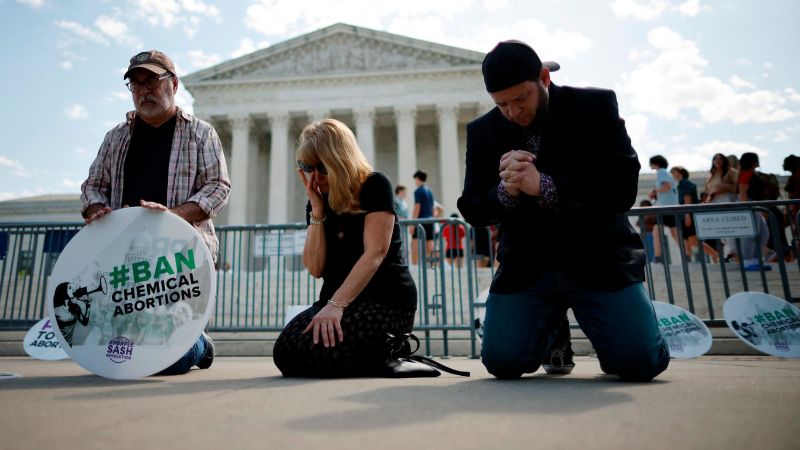The Supreme Court said Wednesday it will consider whether to restrict access to a widely used abortion drug — even in states where the procedure is still allowed.
The case concerns the drug mifepristone that — when coupled with another drug — is one of the most common abortion methods in the United States.
The decision means the conservative-leaning court will again wade into the abortion debate after overturning Roe v. Wade last year, altering the landscape of abortion rights nationwide and triggering more than half the states to outlaw or severely restrict the procedure.



That would mean Federal Agencies would be beyond Judicial review. You sure that’s what you want?
Not beyond judicial review, but not under the purview of the SCOTUS. This is the kind of shit that District Courts and US Courts of Appeals are for. SCOTUS is only supposed to determine if the rulings of lower courts, legislation, or presidential actions violate any provisions of the Constitution or existing statutes. They aren’t supposed to legislate from the bench, they aren’t supposed to pass judgment on cases, and they aren’t supposed to meddle in the affairs of the other branches as long as they are coloring inside the lines. Their only purview is the legality of laws and rulings. Nothing more. As much as I was happy for the Roe v. Wade ruling, it was supposed to be kicked back to the legislature to form appropriate laws surrounding the matter, not to rest the legality on the president that was set. This is fundamentally judicial overreach, as is about 90% of everything they have done this last couple years.
They aren’t under the purview of SCOTUS. The lower courts are.
That’s exactly what they’re doing here. A lower court ruled that the FDA didn’t follow it’s own process when relaxing restrictions around the prescribing and dispensing of mifepristone. The loser appealed and the next highest court ruled that the FDA did follow its own process. Repeat appeals until you reach SCOTUS who is now ruling on which of the lower courts is correct. That’s it.
SCOTUS is NOT ruling on whether mifepristone is legal or approved for use, it’s ruling on whether a lower court followed the law when reaching its decision and whether or not that decision is consistent with the Constitution. In practical terms whichever way SCOTUS rules it’s those lower courts whose authority will be used to direct (or not) whatever the FDA does next.
You see so much as “Judicial Overreach” for two reasons:
Most of what is decried as “Judicial Overreach” should more correctly be called AGENCY Overreach but its being blamed on the Judiciary.
Like this case. The problem isn’t SCOTUS it’s the agency known as the FDA.
could be fun